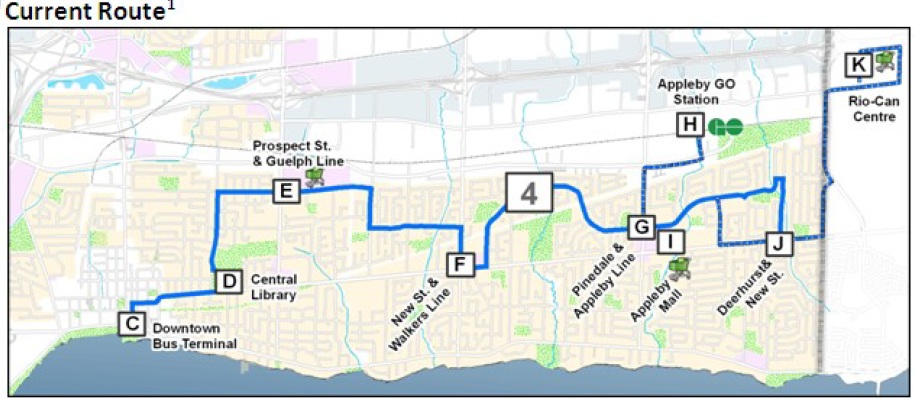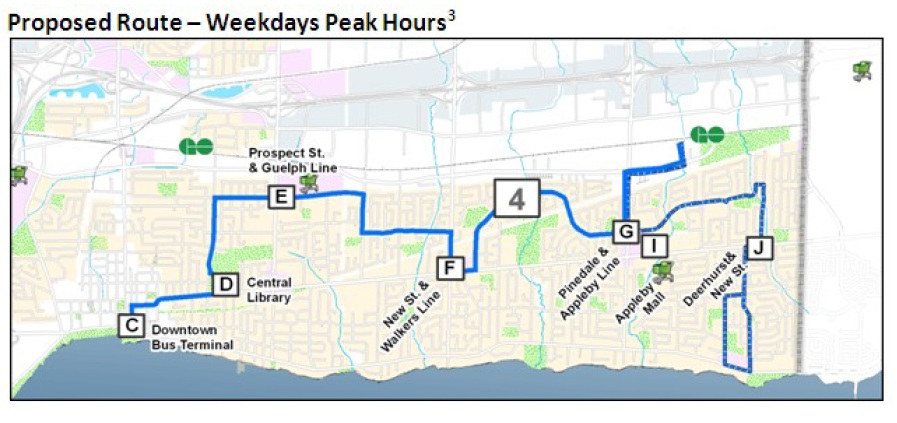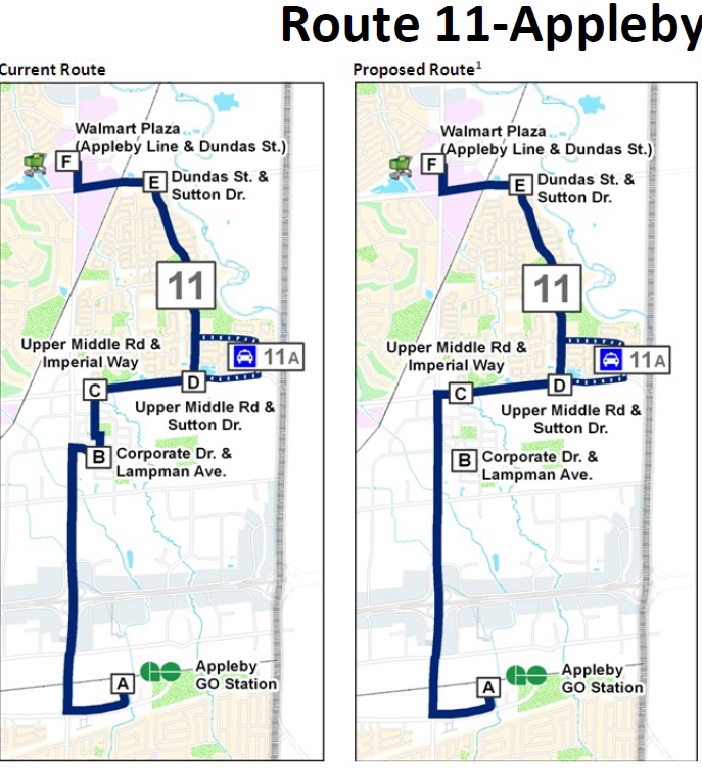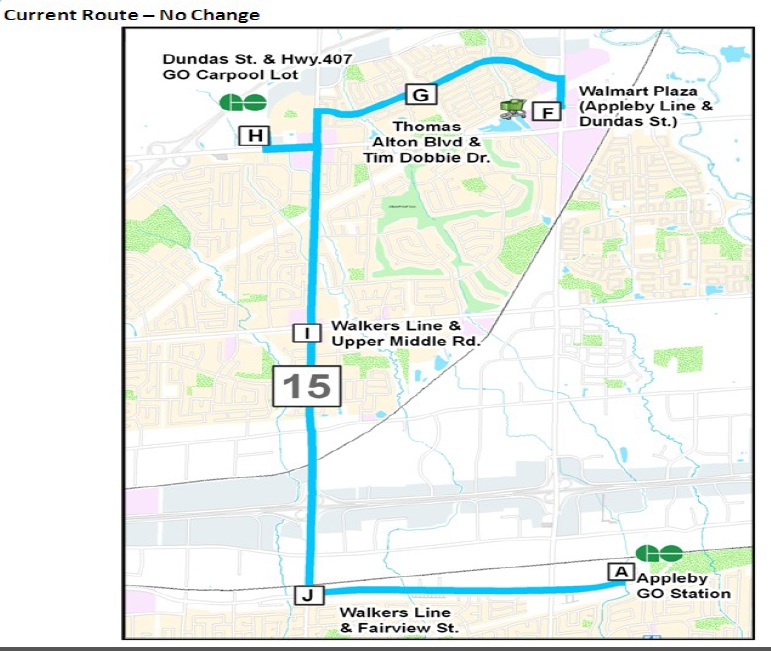BURLINGTON, ON May 17, 2012 Transit got a kiss and a promise, and had half a million taken out of one pocket and put in another last week, as four “underused” routes had major changes made to their level of service on the roads they travel.
The routes that are to have significant service level changes and some direction changes are:
Route 4; Route 11; Route 12; Route 15, with changes to the #61 and #62 GO specials as well.
The four routes were described as marginal and “under performing” and the city set out a proposed service level for each and called it the Interim Service Plan.
This Interim Plan is to resolve some of the more immediate problems while the city continues its work on the Transit Master Plan and gets a sense of what changes the citizens want to see in the Official Plan Review that is currently taking place.
City Manager Jeff Fielding said he expected to need between 18 and 24 months to figure out if the small fixes made during the interim are going to make a difference.
While the Workshop was all about transit, Fielding explained most of the choices that had been made while Director of Transit Donna Shepherd took Council through the presentation.
In this Interim Plan the city is cutting back frequency from once every half hour to every hour on most of the routes and making alterations on just about all of the four routes. “How well did we deliver and is anyone better off was the question Fielding asked again and again – and it may well be the question that transit users in Burlington will want to remember and ask in a year and a half.
Doug Brown, perhaps the most informed citizen when it comes to transit, doesn’t think all that much of several of the changes.. “Burlington Transit” he said, “thinks they can make route changes whenever there is a problem but transit doesn’t work that way.” If you keep making changes it just takes that much longer to get a stable ridership. The change is upsetting to people.
“The most important thing about transit is the need to be reliable and if you go changing the schedule people begin to see you as unreliable and stop using the service.
Brown thinks the transit people have seriously misinterpreted their own data and that the data they use for route 4 is faulty.
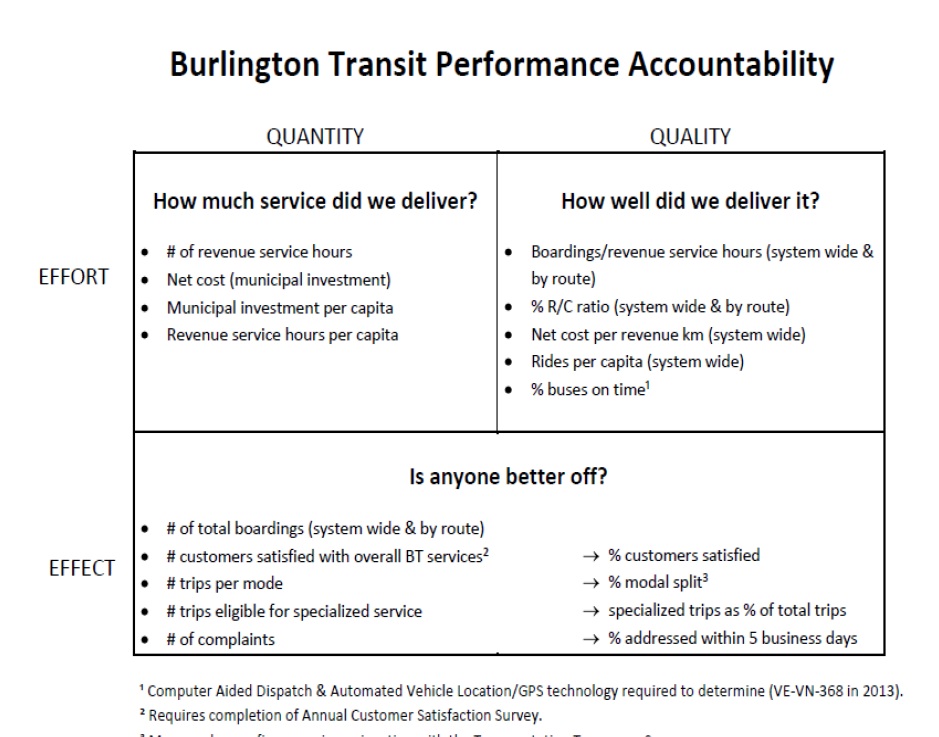
The city has created a grid against which it will measure how well it is doing in getting transit to the point where the revenue/cost ratio is bearable and ridership is seen to be increasing. How reducing transit frequency is going to get them there is very debatable. Public will get several opportunities to discuss the changes which are scheduled to go into effect September 2
The changes to the four routes are expected to save the transit service $500,000 each year which they say they will then pump into the well-used routes to improve the service on those routes. Brown’s comments that : The added service level are rather vague and goes on to say that Burlington spends half the average spend in other Greater Toronto Area municipalities.
“We really do underspend on transit in this city” and Brown should know – he attends numerous transit conference each year. At a transit event in Markham two weeks ago Brown said the buses they use “are like Cadillac’s compared to some of the 20 year old buses Burlington has on the streets”.
While Brown can talk authoritatively on each of the routes that are to undergo a change he also points to what he believes is one huge error and that is the assigning of funds the city gives to GO service as a transit cost. The city pays GO $3.3 million each year (just for being there I guess) and that amount is shown on the books as a cost to the transit system when there is no benefit to transit.
In the transit business the key number they use is their Revenue/Cost ratio. This RC number pops up all over the place and Brown thinks with the $3.3 million given to GO included in the transit costs – the ratio is badly skewed and thus not a very reliable measure.
Route 4
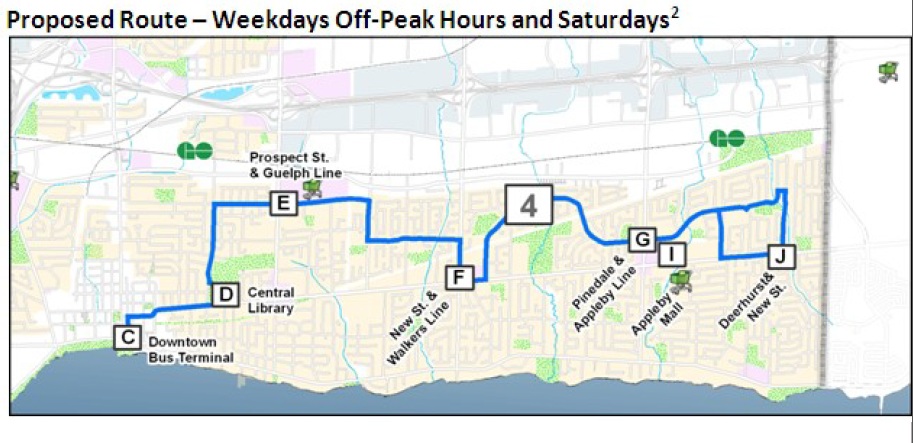 Current service is basically every half hour. There are two proposed services for this route. A) 30 minute frequency 9-4 weekdays; Saturday 7am to 7 pm. B) Weekdays 30 minute frequency 6-9 am and 4-7 pm
Current service is basically every half hour. There are two proposed services for this route. A) 30 minute frequency 9-4 weekdays; Saturday 7am to 7 pm. B) Weekdays 30 minute frequency 6-9 am and 4-7 pm
Route 12
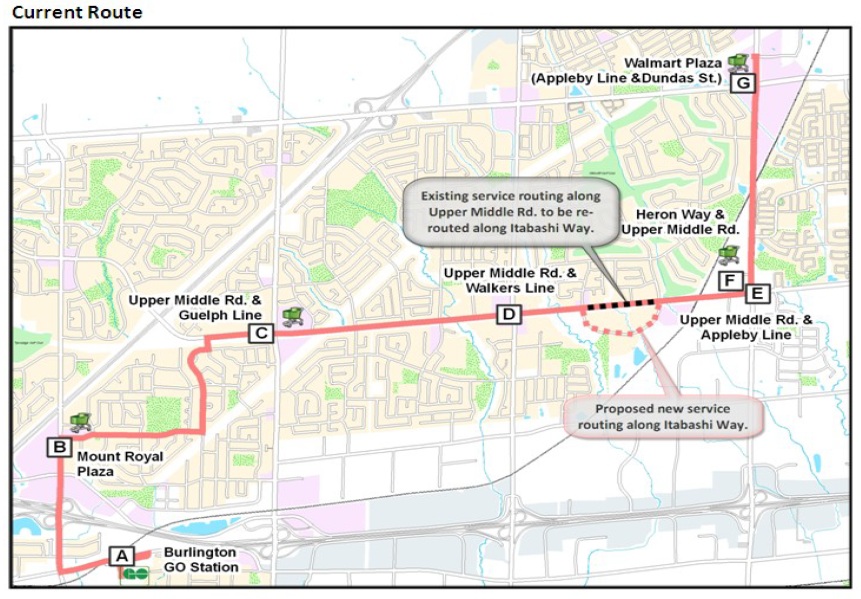
Only change in this route is having the bus dip into Itabashi Way and the Tansley Wood Community Centre/
Having the service swing into Itabashi Way is seen by many as a very good move – but reducing the service to a 60 minute frequency from the current 30 minute service bothers many people.
Route 15
Frequency of service will be reduced from every 30 minutes to every 60 minutes between 9:30 and 2:30
With the planned routes changes now out in the open the city wants to meet with the public for input and feedback. There will be four public sessions, which is two more than the city held for the early stage of the Official Plan review
May 23 – Wednesday at the Senior’s Centre 3:00 to 4:30 pm
June 4 – Monday at Holy Rosary School 6:30 to 8:30 pm
June 4 – Wednesday at Tansley Woods 6:00 to 8:00 pm
June 5 – Tuesday at City Hall 6:00 to 8:00 pm
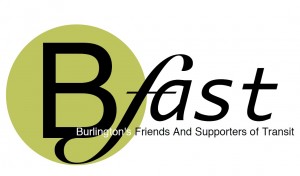
A newly formed transit will be known as Bfast - they intend to inform the debate on transit and insure the issue of transit service doesn't get lost in the Official Plan Review
There is a group of citizens who have formed a coalition that is going to track the way transit is treated during the review of the Official Plan. They have titled themselves Bfast and will meet next at the Burlington Central Library June 11 at 7:00 pm when Brian Bedford, former Commissioner of Planning for the city of Toronto will talk about how transit has to be funded.
A number of people who really study transit in this city are troubled with the changes made on route 10 which happens to have buses that travel right in front of Councillor Paul Sharman’s home. James Smith quotes Sharman as saying he bought his house on a Sunday when there were no buses running and thought he was getting a great deal. He didn’t realize then that there was a reason for homes being less expensive the other side of Appleby Line.
Smith it should be pointed out ran against Sharman in the last municipal election. Sharman won; Smith came third. The second place candidate Cal Millar is now the President of the Burlington federal Conservative Association and now has the ear of MP Mike Wallace and may well expect the Wallace machine to support him in 2014.















